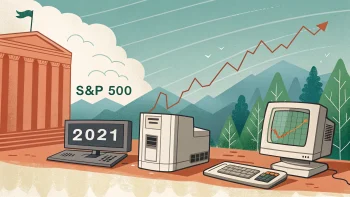As a freelancer, you’re probably doubly aware of how important it is to save for emergencies. When you have variable income and don’t know how much you’re making from one month to the next, it really puts emergency savings at the forefront of your financial choices.
The difficult part becomes the excuses. Excuses like “I can’t save for emergencies because my income is so wild” or “I can’t plan to save because I never know how much I’m going to make.”
These excuses are not only false, they are also detrimental. Fortunately, there are ways you can save for emergencies as a freelancer.
Table of Contents
ToggleBudget Using Percentages
When you don’t have fixed income, the easiest thing you can do is budget using percentages. You already have to do this for your estimated taxes anyway (ex. your accountant tells you to save 20% of your net profit for taxes) so it just makes sense to also apply it to your emergency savings.
For example, maybe you shoot for gold and aim to save 10% of your income for emergency savings. Because your income is irregular and comes a different times, you would put 10% of every deposit that comes in toward your emergency fund.
I did this for years when I first started out and hadn’t yet stabilized my freelance income.
Zero-Sum Budget
The next easiest way to build an emergency fund as a freelancer – at least in my opionion – is to use the Zero-Sum Budget. I’ve been doing this for about a year and it’s helped me save thousands of dollars for an emergency should one arise.
Here’s the breakdown of how I use a Zero-Sum Budget. Once I’ve saved money for taxes and have allotted a percentage of revenue for business expenses, I then give every remaining dollar a job. Those jobs look like bills, retirement, travel and – you guessed it – emergency savings.
I simply just divvy up what ever money comes in between those categories until I have a “zero” balance in my checking account.
Use automatic savings apps.
The best tool I have found for painless automatic savings is called Digit. In fact, I wish this existed a few years ago when I found it difficult to save money as a freelancer.
Digit is a service that links to your checking account and takes out small deposits to put into savings. Their algorithm looks at your income and spending and then uses the information to determine the money you’re not actually going to notice is missing. That money gets deposited into a savings account.
To give you an idea of how effective this is, from December 2015 to February 2016 Digit had found nearly $500 to put into my savings. That’s enough for a car repair or the co-payment of an emergency room visit.
Final Thoughts
While it may seem difficult to build an emergency fund as a freelancer, it can be done. In fact, it’s a habit you should instill from the very beginning. Fortunately, there are several methods you can use to build emergency savings despite having irregular income.
















